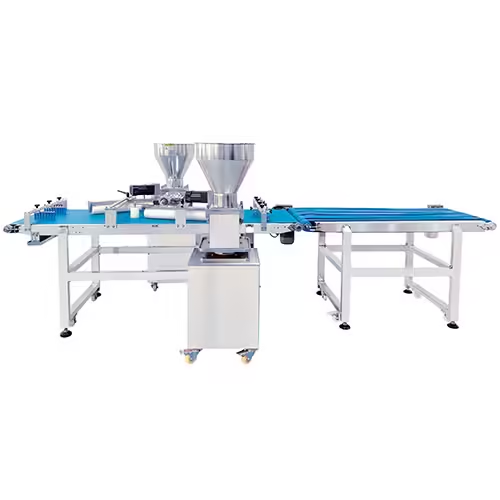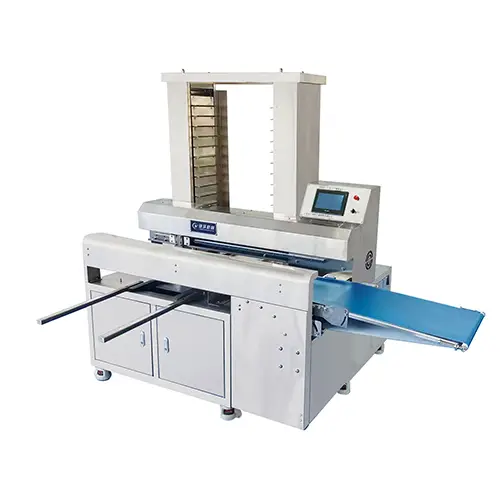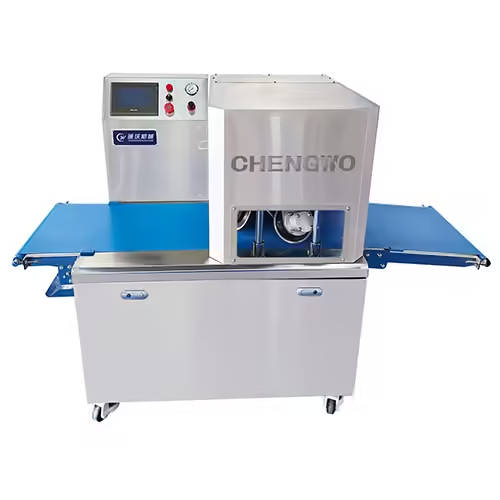



The food processing industry is evolving rapidly, driven by technological advancements and changing consumer demands. At the heart of this transformation are machines for food—sophisticated equipment designed to increase efficiency, ensure food safety, and maintain product quality. Whether for baking, packaging, or processing, these machines play a pivotal role in meeting the rigorous standards of modern food production.
In this blog, we will explore the latest trends impacting machines for food, highlighting innovations, challenges, and future directions. From automation and AI integration to sustainability and smart manufacturing, the world of food machinery is undergoing a profound shift that promises to redefine the way food is produced globally.
Automation has become a cornerstone in food manufacturing, significantly enhancing productivity and precision. Machines for food now incorporate robotic arms, automated conveyors, and computerized control systems that reduce human intervention.
This trend allows food processors to meet rising demand while adhering to strict hygiene and safety standards.
Artificial Intelligence (AI) is revolutionizing machines for food by enabling smarter operations. AI-powered sensors and machine learning algorithms optimize production lines, predict maintenance needs, and adapt to varying raw material qualities.
AI integration leads to more efficient machine for food that can learn and evolve with production requirements.
With increasing environmental concerns, sustainable practices are shaping the design and operation of machine for food. Energy-efficient motors, biodegradable materials, and waste reduction technologies are now integral.
Sustainability is not only a regulatory requirement but also a competitive advantage in today’s food industry.
Strict food safety regulations demand that machine for food incorporate hygienic designs that prevent contamination and facilitate easy cleaning.
These features ensure compliance with food safety standards while protecting consumer health.
Today’s food market is highly diverse, requiring machine for food to be adaptable to different product types and batch sizes.
Flexible machines help food producers innovate and respond quickly to market trends.
| Feature | Automation Systems | AI-Enabled Machines | Sustainable Machinery | Hygienic Design | Flexible Manufacturing |
|---|---|---|---|---|---|
| Production Efficiency | High | Very High | Moderate to High | Moderate | High |
| Cost of Implementation | Moderate | High | Varies | Moderate | Moderate |
| Maintenance Needs | Low to Moderate | Predictive and Low | Moderate | Easy | Moderate |
| Environmental Impact | Moderate | Moderate | Low | Low | Moderate |
| Adaptability | Low to Moderate | High | Moderate | Low | Very High |
Despite many advancements, the industry still faces challenges related to the integration and operation of machine for food.
Addressing these challenges requires ongoing innovation and strategic planning.
The future promises even more sophisticated machine for food with developments like IoT connectivity, augmented reality for maintenance, and advanced robotics.
These innovations will further enhance efficiency, sustainability, and product quality.
Machines for food are at the forefront of transforming food production worldwide. By embracing automation, AI, sustainability, and flexible manufacturing, businesses can enhance efficiency, ensure safety, and stay competitive in a fast-changing market.
Ready to upgrade your food processing capabilities with state-of-the-art machine for food? Contact us at Chengwo to explore our advanced intelligent baking lines and food processing equipment tailored to your unique needs. Let’s shape the future of food manufacturing together!
What types of machine for food are essential in baking and food processing?
Key machines include mixers, ovens, dough sheeters, packaging equipment, and quality control systems, all designed to improve efficiency and product consistency.
How do machine for food improve food safety?
Through hygienic design, automated cleaning systems, and contamination control features that meet regulatory standards.
Are machine for food adaptable to small and large scale operations?
Yes, many machines offer modular and scalable designs to fit both small artisanal producers and large industrial manufacturers.
How can I ensure my machine for food stay up to date with technological advancements?
Partnering with innovative manufacturers like Chengwo, which focus on continuous R&D and custom solutions, helps keep your production line cutting-edge.

